In today's digital age, maintaining proper etiquette in online classrooms is more important than ever. With diverse students joining from various backgrounds, a collaborative and respectful environment fosters effective learning for everyone. By understanding the nuances of online communication, we can enhance our interactions and ensure that all voices are heard. Curious to discover some essential tips for mastering online classroom etiquette? Read on!

Respectful Communication
In online classrooms, such as those hosted on platforms like Zoom or Google Classroom, respectful communication is paramount for maintaining a productive learning environment. Timeliness in attending classes, with many sessions scheduled for specific durations (typically 60-90 minutes), is vital to demonstrate commitment. Effective participation involves utilizing courteous language in chat functions or during discussions, avoiding interruptions, and acknowledging peers' contributions. Moreover, students should exhibit active listening by responding thoughtfully and staying engaged throughout the session. Adhering to the online classroom code of conduct not only fosters a positive atmosphere but also enhances the overall educational experience, allowing all participants to thrive.
Punctuality and Attendance
Punctuality in online classrooms significantly impacts the learning experience, fostering a respectful and productive environment for students and educators. Attendance requirements often dictate participation levels, with many institutions emphasizing the importance of logging in at least five minutes before class begins to ensure all technical issues are resolved. Online platforms, such as Zoom or Google Meet, facilitate real-time interaction, making it crucial for students to engage consistently. Maintaining a reliable presence not only aids personal academic success but also upholds the collective morale of the learning community, especially in courses with live discussions or collaborative projects.
Appropriate Online Behavior
Promoting appropriate online behavior in virtual classrooms is essential for fostering a productive learning environment. Clear guidelines on etiquette can enhance communication between students and educators. Respectful language, punctuality for sessions (considering time zones), and active participation during discussions are vital. Additionally, tools such as video conferencing software (e.g., Zoom, Microsoft Teams) require students to maintain professionalism, including appropriate attire and minimizing distractions. Furthermore, understanding digital privacy is crucial; students should be aware of the implications of sharing personal information and online interactions. Ultimately, cultivating a culture of respect in online learning spaces leads to a more engaging and effective educational experience.
Technical Preparedness
In an online classroom environment, technical preparedness is crucial for a seamless learning experience. Students must ensure device compatibility, such as using laptops or tablets with updated operating systems like Windows 10 or macOS Monterey. Reliable internet connectivity, with bandwidth exceeding 5 Mbps for video conferencing, is essential to avoid disruptions. Familiarity with virtual platforms like Zoom or Google Classroom is necessary, ensuring proper login procedures and functionality checks ahead of class time. Essential accessories, such as headphones with a built-in microphone, enhance audio clarity, minimizing background noise. Additionally, students should keep software up to date, as outdated applications can lead to security vulnerabilities and performance issues, impacting overall participation in discussions and collaborative assignments.
Engagement and Participation
Engaging actively in online classrooms fosters a productive learning environment. Students should adhere to guidelines, such as logging into platforms like Zoom or Microsoft Teams promptly to avoid disrupting lessons, particularly during live discussions scheduled at specific times. Utilizing features like chat for questions (ideally related to the topic being discussed) enhances the interactive experience, while keeping microphones muted unless speaking minimizes background noise distractions. Video activation encourages personal connection, benefitting group dynamics and collaborative projects, enhancing participation significantly. Additionally, maintaining professional attire and a distraction-free backdrop ensures respect towards instructors and peers during virtual sessions.

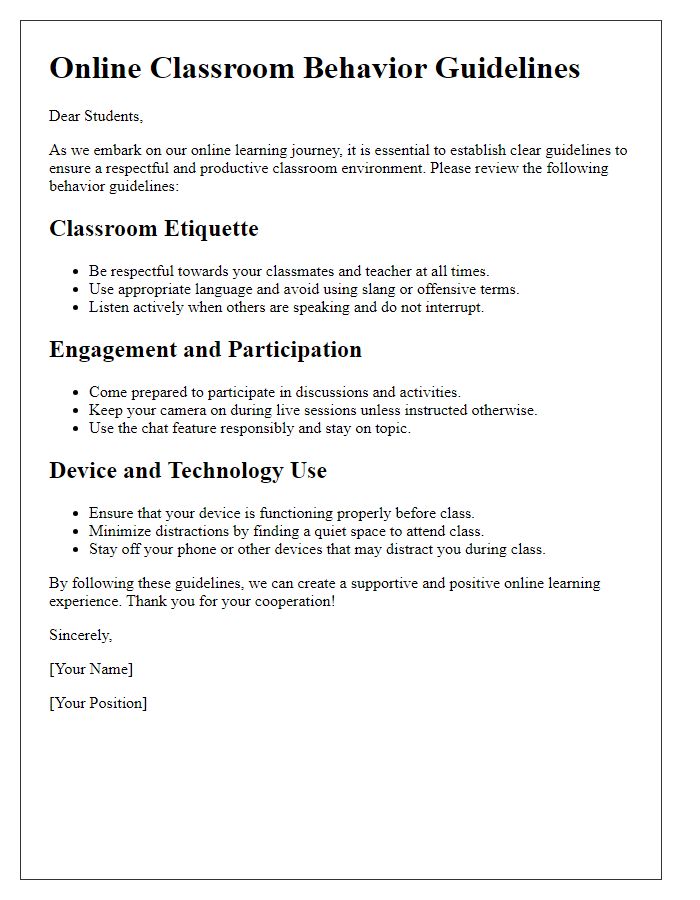
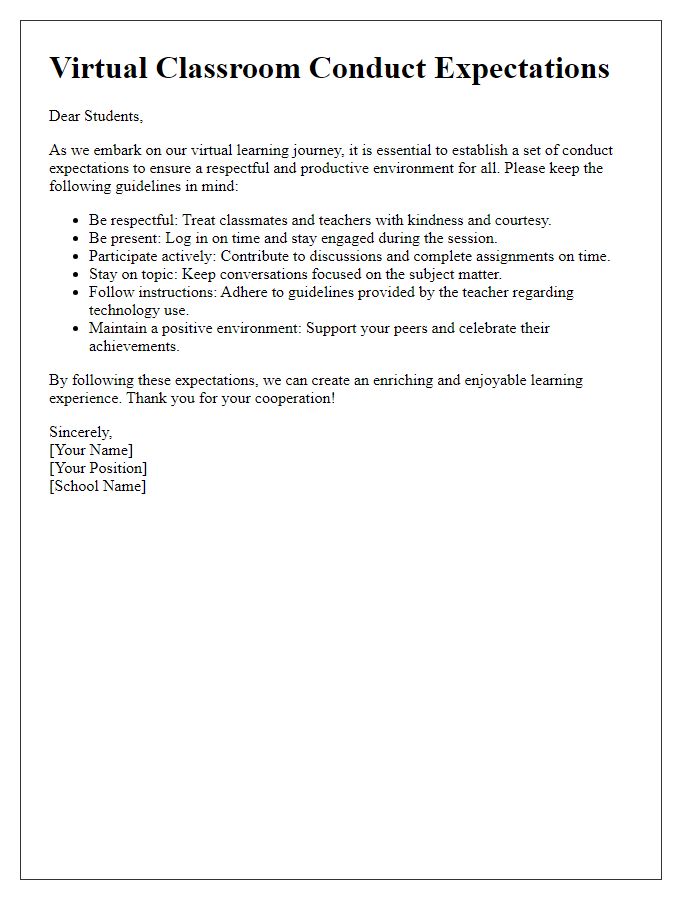
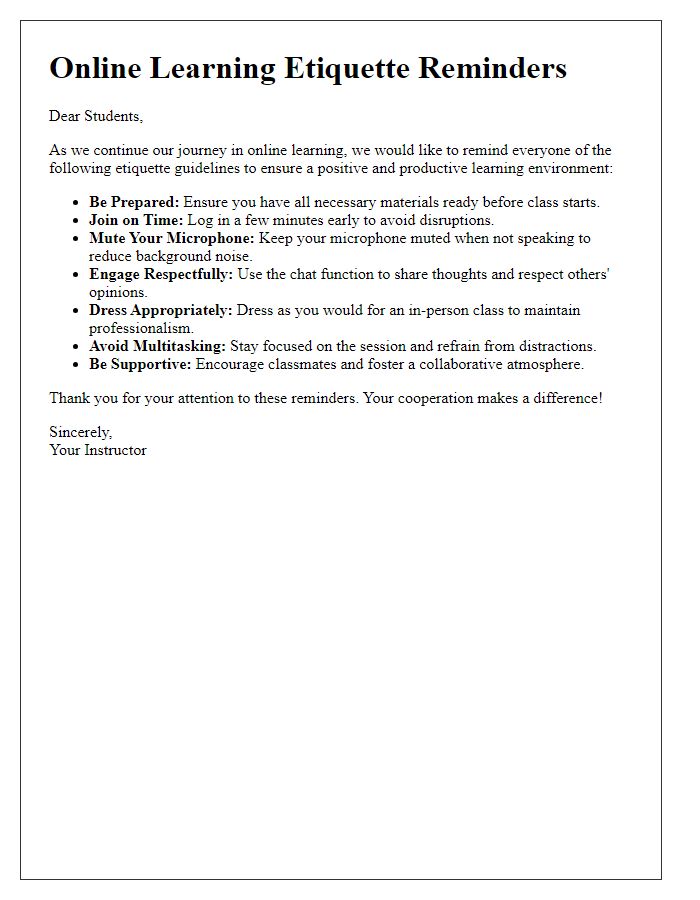
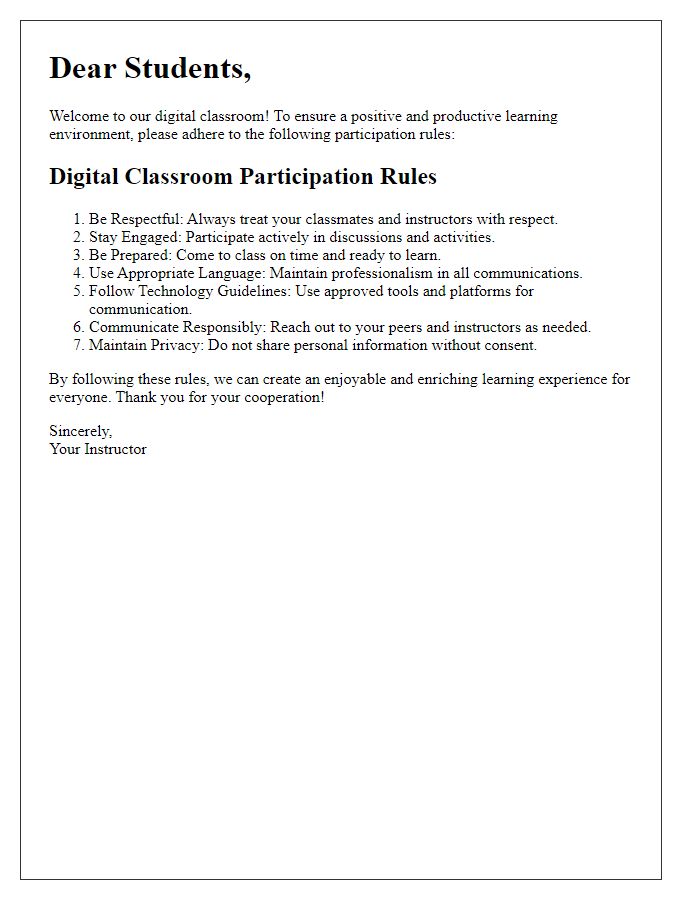
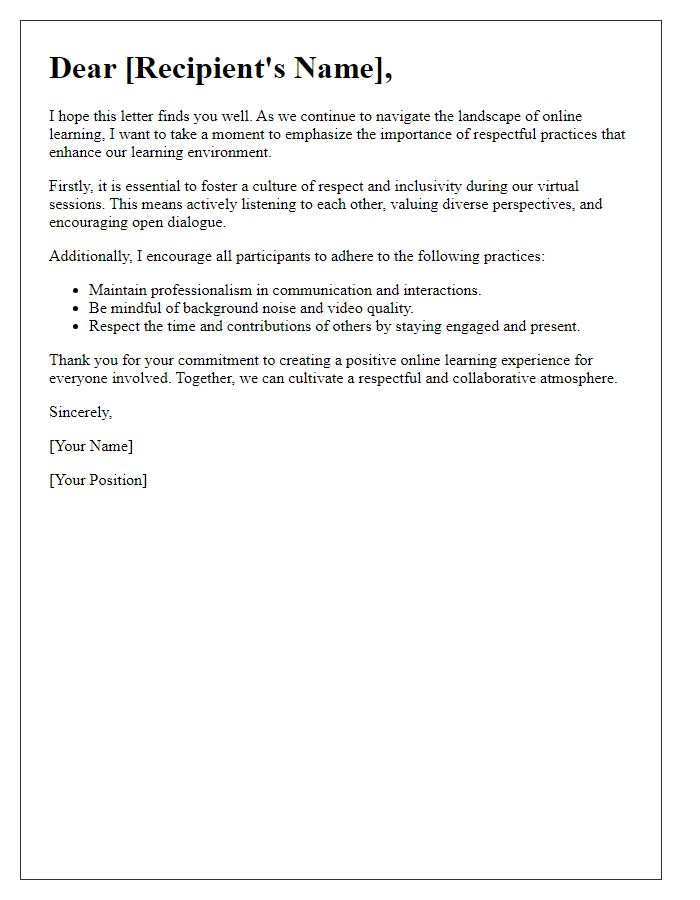
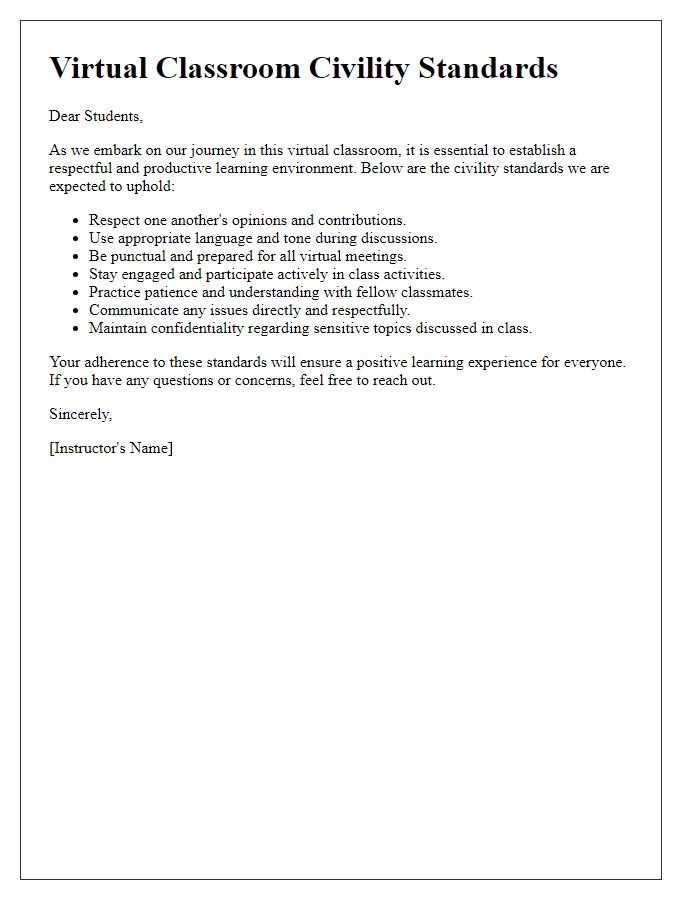
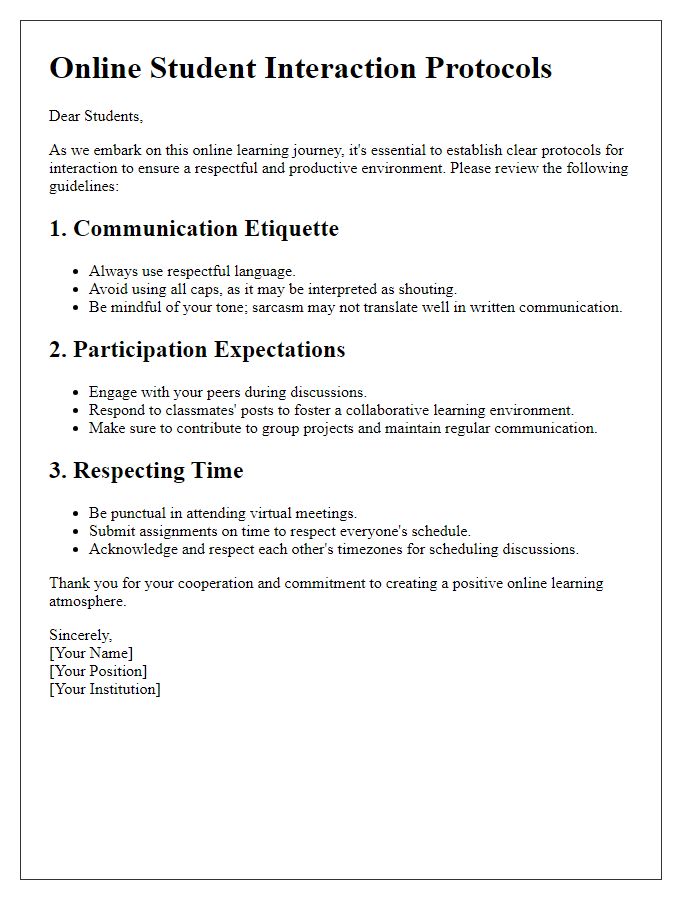
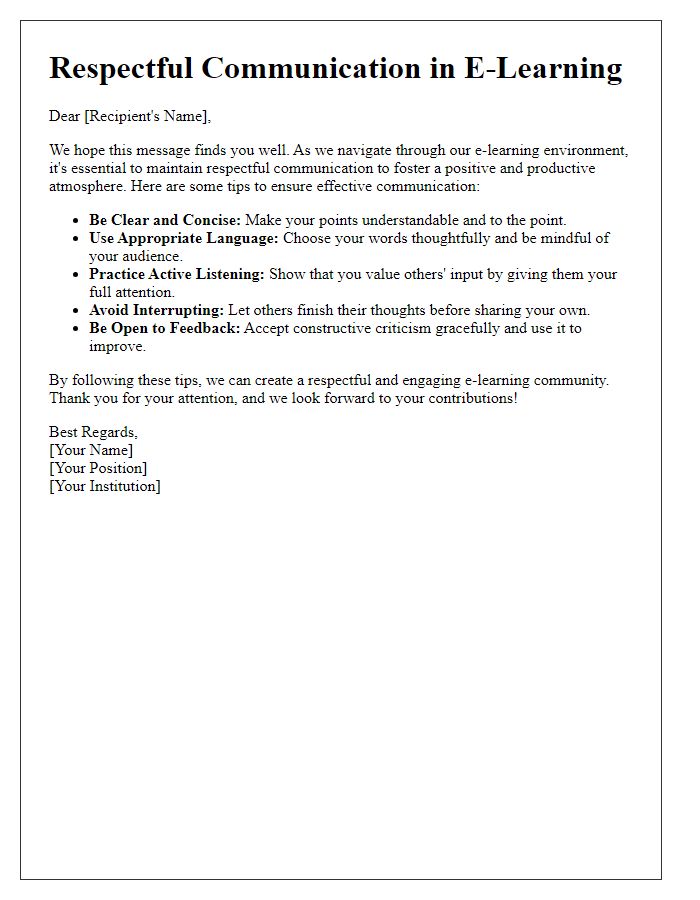
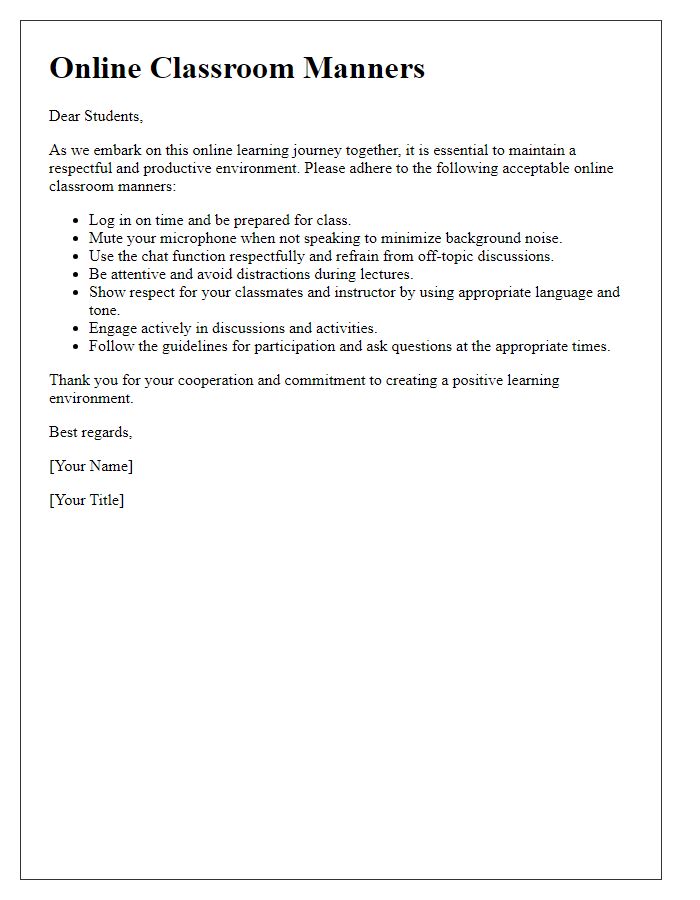
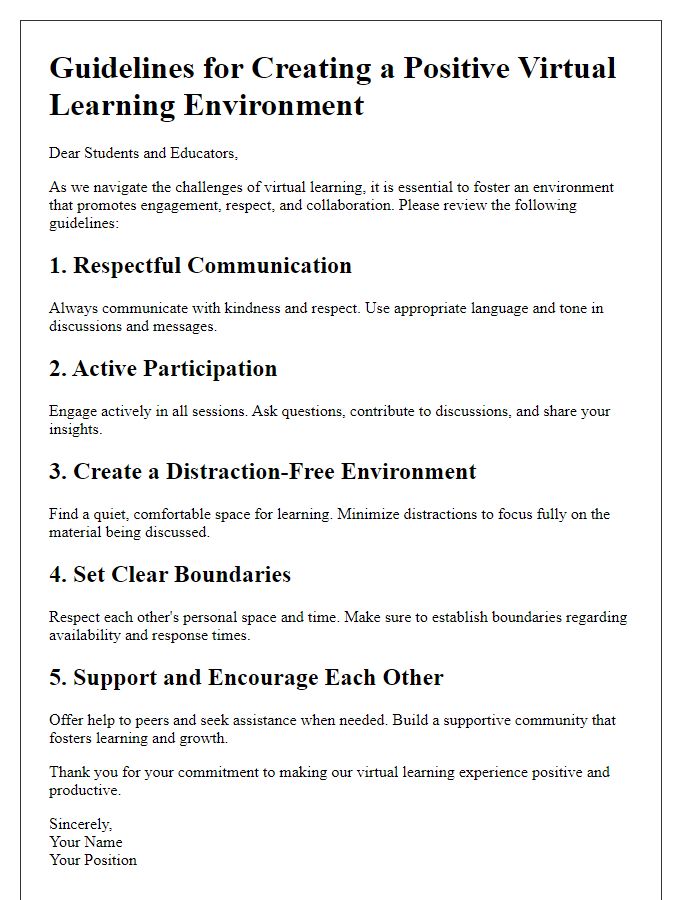


Comments